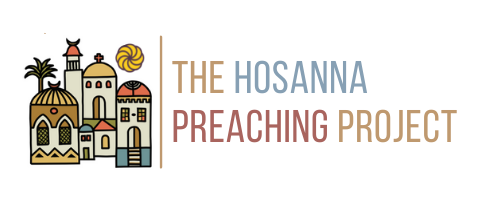About the Project
The purpose of the Hosanna Project experience is to struggle with and to address the serious theological problems which arise when the traditions of a religious community and its way of reading the scriptures assert that its members are somehow chosen, set apart, called or covenanted to be in a unique and specially privileged relationship with God to the exclusion of all others. These assertions have profoundly affected the self understanding, the relationships to those outside the religious community, and the attitudes and values of many within the Jewish, Christian and Muslim traditions across the centuries. And, secular nation-states, like the USA, Israel, and others sometimes make similar claims of divine election.
It is one thing to affirm that every human on earth is created in the image and likeness of God, is infinitely loved by God and therefore is of infinite value. It is quite another to claim that belonging to one or another of these religious or national communities gives one's life a value, a vocation and a unique relationship to God which somehow supercedes any of the others. Such a conviction easily leads to violence, abuse and oppression, as history all too clearly demonstrates.
To transform these long-standing issues and their consequences in each of our religious traditions is no small undertaking and will demand years of hard work. Indeed it will require something approaching a theological and ecclesiastical revolution. But we have no choice but to begin, since it is now clearly essential to preserving the life of the world and to ending the violence which threatens to destroy it. Justice and peace require the reconciliation of our religious communities in order to bring an end to the deep divisions which our misguided visions have helped to create. The Hosanna Project has, for years, represented a modest beginning to transform preaching into a means of struggling with these very issues.
Our Project is designed to help preachers, educators, and advocates challenge and inspire believers to heed God's urgent call to justice and reconciliation in Palestine and Israel by raising a vision of God's love that embraces all people, especially those who are oppressed and persecuted, and exposing the theological error of using biblical passages to rationalize injustice to Jews or Palestinians, or their supporters.
The Project offers an annual seminar for small groups of preachers, educators, and advocates who meet under the direction of our teaching team to study and discuss passages taken from the upcoming year's lectionary texts which refer to the profound theological concerns voiced directly by Palestinians and Jews.
Palestinians have called upon the churches of the world to "preserve the word of God as good news for all rather than to turn it into a weapon with which to slay the oppressed," and to renounce the theological cover-up for the injustice we suffer." (Kairos Palestine, 6.1)
For instance, some Christians and Jews erroneously interpret Genesis 12:3 as a literal land grant to contemporary Jews of all Palestine and texts in Deuteronomy, Joshua and Judges as an excuse to "cleanse" Palestine of non-Jews. To support contemporary Jewish claims to Palestinian land, other texts are used to claim a connection between the biblical kingdoms of Israel and Judah, and the current state of Israel, or a genealogical connection between modern day Jews and the ancient Israelites.
Jews have called upon churches to renounce the real or apparent anti-Semitism in New Testament texts (e.g. Matthew 27:25) that are cited to blame all Jews for the crucifixion of Jesus (the charge of Deicide), texts that declare that God's covenant with the biblical Israelites and their Jewish spiritual heirs has been nullified or replaced by God's covenant with all who believe in Christ (supercessionism), as well as texts that denigrate or appear to denigrate all Jews. Both Jews and Palestinians engaged in peacemaking have urged their religious communities to interpret the Bible through the lens of contemporary international standards of justice and human rights.
The first of these seminars was held in Chicago, Illinois, from October 27-28, 2015, just before the annual fall meeting of the Palestine Justice Network (PJN) of the PC(USA), formerly known as the Israel Palestine Mission Network (IPMN).

